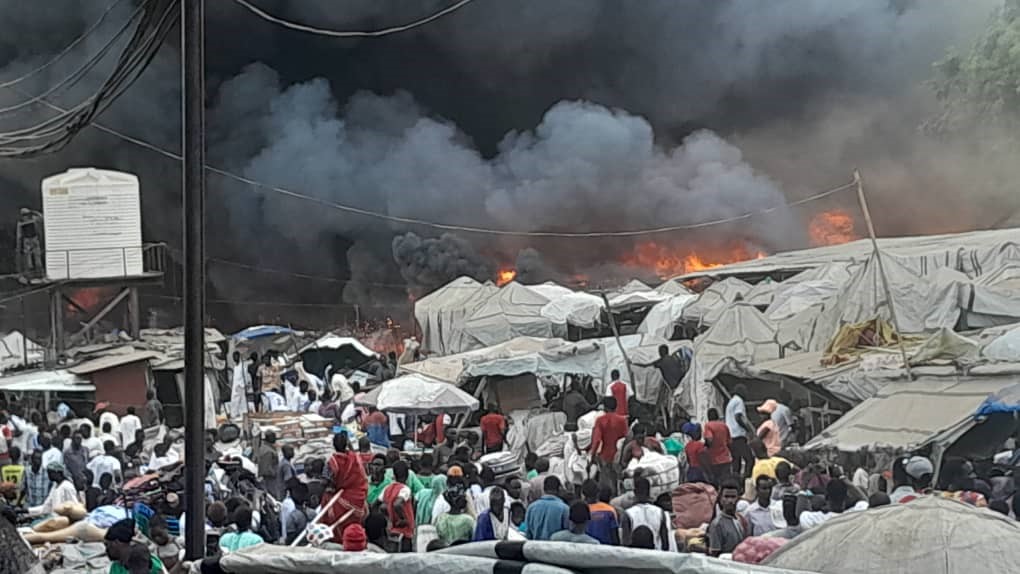Smoke billowing as fire razes down shops and businesses at Konyo Konyo market. [Photo: Courtesy]
At least one person was killed in a fast-moving fire at Konyo Konyo market that burnt to ashes 54 shops on Thursday.
A fire caused by an electricity chock circuit, ranged uncontrolled for about two hours before the firefighters could reach the scene.
In an update to the media on Friday, Gerald Francis, Central Equatoria State Minister of Peace Building noted how congested the Konyo Konyo market is which made it impossible for the firefighters to respond in time.
He said despite the state’s plans to demarcate the market, they have always faced resistance from some members of the public.
“Sometimes they (surveyors) are disturbed by our people (citizens) because if you want to give them a direction, sometimes you meet resistance,” he lamented.
“But now, as the fire outbreak has happened several times, we are going to take a drastic step to organize the market.”
“We have seen that’s why it was not easy for the fire brigades to access or to quell the fire yesterday because the roads all there are blocked by street vendors, and this is a problem,” Francis explained.
He said people should learn from the experience of the Konyo Konyo market fire outbreak.
“We want our people to hear from here, that when the government says, ‘please don’t sit on the road, don’t occupy the reserve land’, people should listen to this because this is very important so that we don’t repeat such incidents,” Francis said.
However, he said a committee has been formed by the governor to investigate the cause of the fire and examine the losses incurred by the traders.
He said the group is expected to report back after two weeks though he did not mention whether the traders will be compensated. By By Anak Dut, City Review






